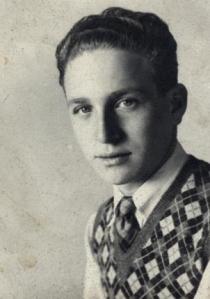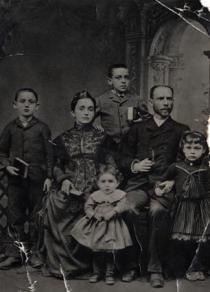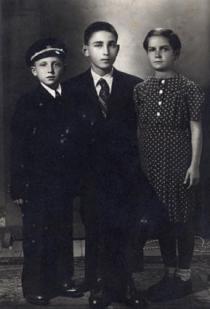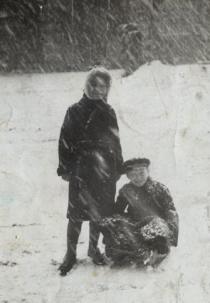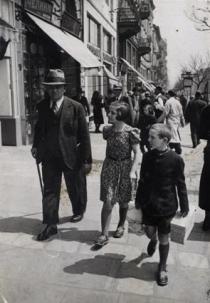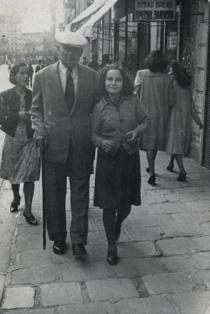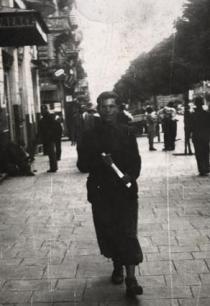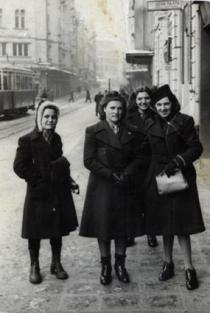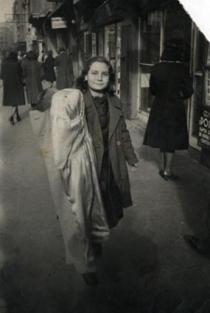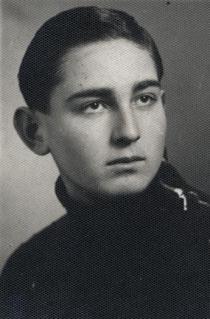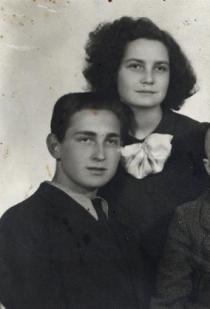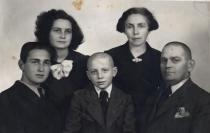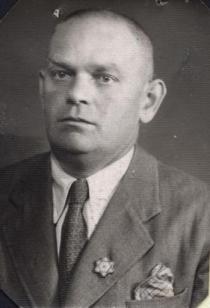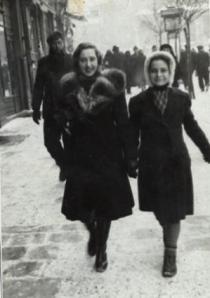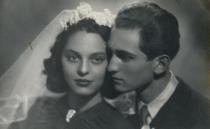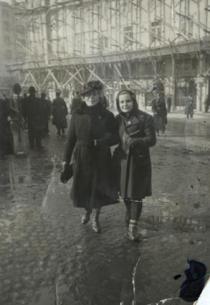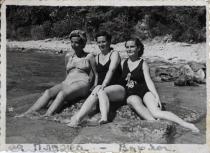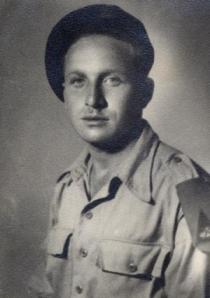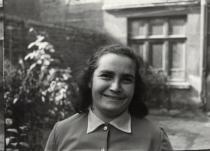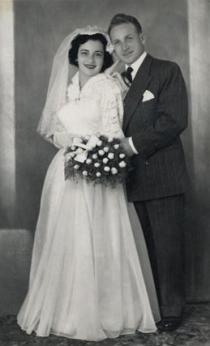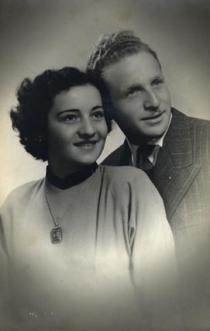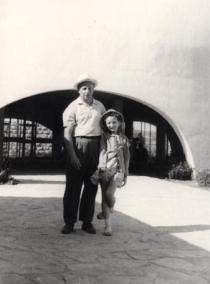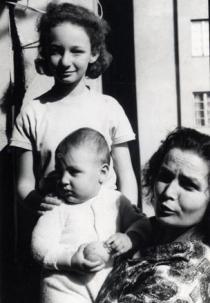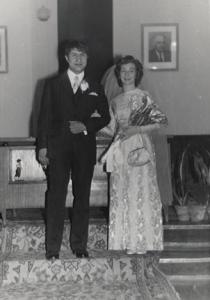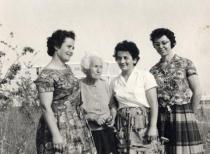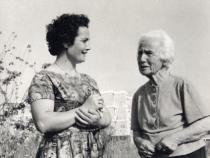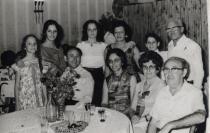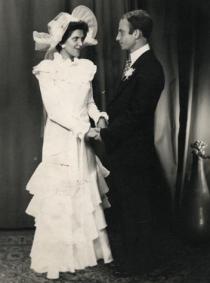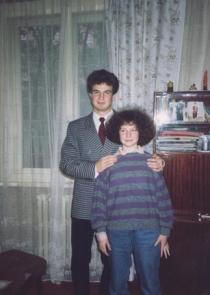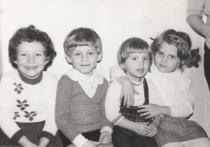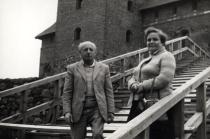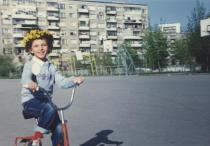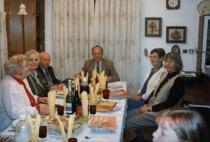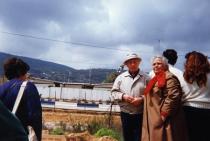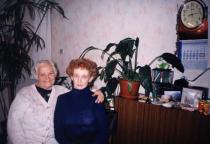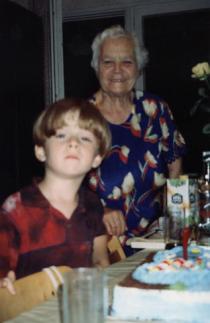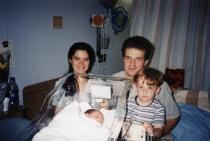The photo was taken in the center of the capital [Sofia] in 1939. Here I am with co-workers, but I don't remember who they are already. The only thing I can recall is that the picture was taken at the time when I worked for a clothes shop on Slaveykov Square in Sofia.
I remember that before and during the Law for Protection of the Nation [1941] my family lived at different addresses in Sofia. We lived in a rented flat in Ruse, after that - in Sofia, where we changed our addresses very often. I remember that in my early childhood we lived in Beli Iskar Str. near the railway station. After that we moved to live in Tetevenska Str. Then we changed our address to a two-storey house in Skobelev Blvd. We lived in two rented rooms in the attic. We had electricity, running water and even a radio. I remember we loved listening to radio Sofia. After that we left for Asenovgrad where we changed two houses. After 9th September 1944 [the communist takeover in Bulgaria] we came back to Sofia and we found a flat in Bacho Kiro Str. Actually, before that we lived for a while in Struma Str.. In 1946 my relatives emigrated to Israel (then Palestine) and I remained to live in a huge, half-empty room at Bacho Kiro Str. Except for me in the flat lived my aunt Haim and auntie Margarita Baruh with my half-brother Leon Yosif Levi. We lived everywhere in rented flats. It was not until I married in 1947 when I started to think of living in my own flat.
I remember the period of the Law for Protection of the Nation very well. When we went out we had to wear these disgraceful yellow stars; we got insulted and even humiliated by random people in the streets whom we even didn't know. We had an obligatory curfew hour; besides, Jews were banned from entering certain shops, restaurants, theaters and so on. There was an invariable sign at these places: ‘Forbidden for Jews’. But what is more - the Jews were not allowed to keep running their private pharmacies, most of them - situated in Sofia's center, so Bulgarians got an advantage of taking control over the pharmacies. Of course, there were restrictions for tradesmen of Jewish origin as well (and the Jews were then predominantly retailers). Students of Jewish origin could not continue their education at universities. There was also one-off tax, for example if one had a bank account of 100,000 leva 30 per cent or 40 per cent of that sum simply got confiscated.

